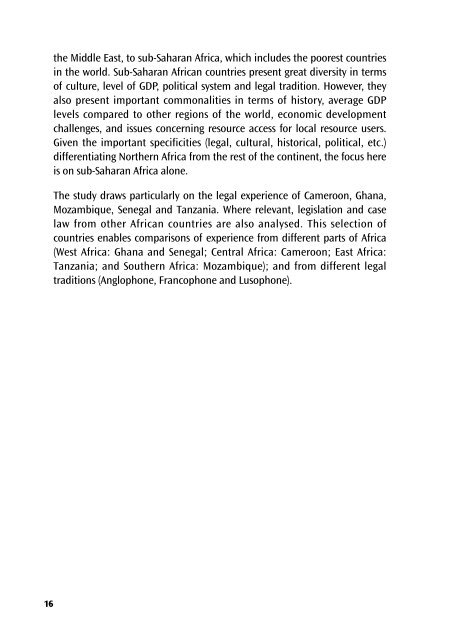Legal empowerment for local resource control
Legal empowerment for local resource control
Legal empowerment for local resource control
You also want an ePaper? Increase the reach of your titles
YUMPU automatically turns print PDFs into web optimized ePapers that Google loves.
16<br />
the Middle East, to sub-Saharan Africa, which includes the poorest countries<br />
in the world. Sub-Saharan African countries present great diversity in terms<br />
of culture, level of GDP, political system and legal tradition. However, they<br />
also present important commonalities in terms of history, average GDP<br />
levels compared to other regions of the world, economic development<br />
challenges, and issues concerning <strong>resource</strong> access <strong>for</strong> <strong>local</strong> <strong>resource</strong> users.<br />
Given the important specificities (legal, cultural, historical, political, etc.)<br />
differentiating Northern Africa from the rest of the continent, the focus here<br />
is on sub-Saharan Africa alone.<br />
The study draws particularly on the legal experience of Cameroon, Ghana,<br />
Mozambique, Senegal and Tanzania. Where relevant, legislation and case<br />
law from other African countries are also analysed. This selection of<br />
countries enables comparisons of experience from different parts of Africa<br />
(West Africa: Ghana and Senegal; Central Africa: Cameroon; East Africa:<br />
Tanzania; and Southern Africa: Mozambique); and from different legal<br />
traditions (Anglophone, Francophone and Lusophone).

















